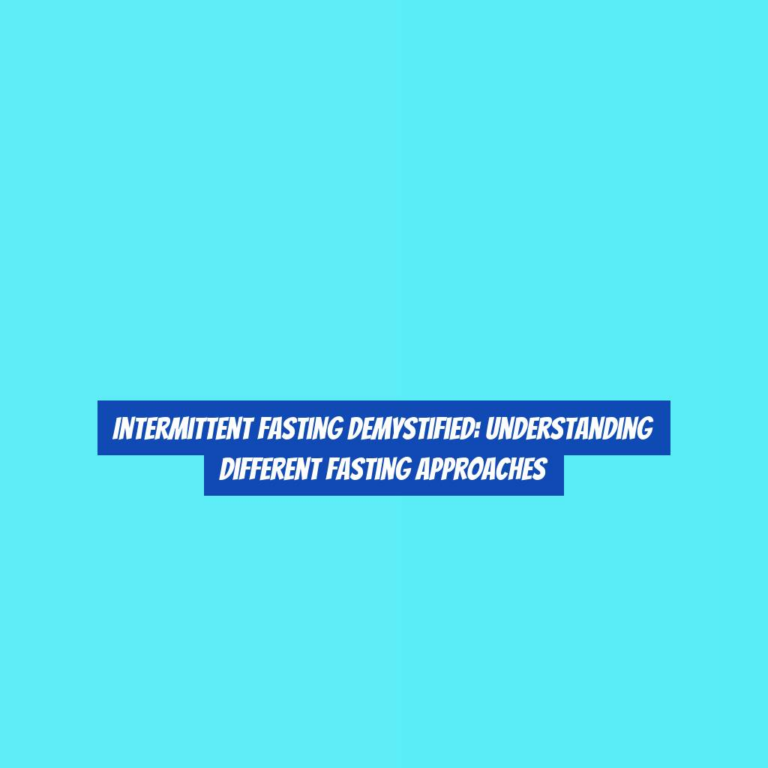The Skinny on Fats: Navigating the World of Macronutrients
Navigating the world of macronutrients can be as daunting as trying to find your way through a dense forest without a map.
When it comes to fats, itG??s easy to get lost in the abundance of information, conflicting advice, and misconceptions.
But fear not, because in the next few minutes, youG??ll gain a clear understanding of the role fats play in your nutrition and how to make informed choices for a healthier lifestyle.
Importance of Fats in Nutrition
Fats are an essential component of a healthy diet, providing energy and supporting various bodily functions. When you consume fats, your body breaks them down into fatty acids, which are crucial for the absorption of vitamins A, D, E, and K. Without these essential fatty acids, your body may struggle to absorb these vital nutrients, leading to potential health issues.
Additionally, fats play a significant role in providing insulation for your organs, maintaining healthy skin and hair, and regulating body temperature.
Choosing the right types of fats is crucial for your overall health. Opt for unsaturated fats, such as those found in avocados, nuts, and olive oil, as they can help lower your risk of heart disease and improve cholesterol levels. On the other hand, saturated and trans fats, often found in processed and fried foods, can raise your cholesterol levels and increase your risk of heart disease.
ItG??s important to strike a balance and consume fats in moderation to support your bodily functions without overdoing it. Remember, fats arenG??t your enemy; theyG??re an essential part of a balanced diet.
Types of Dietary Fats
After understanding the importance of fats in nutrition, itG??s crucial to distinguish between the different types of dietary fats and their impact on your health.
There are four main types of dietary fats: saturated fats, trans fats, monounsaturated fats, and polyunsaturated fats.
Saturated fats, found in animal products and some plant oils, can raise your cholesterol levels and increase your risk of heart disease.
Trans fats, often found in processed and fried foods, are even worse for your health and should be avoided as much as possible.
On the other hand, monounsaturated fats, found in olive oil, avocados, and nuts, can actually help lower your bad cholesterol levels and reduce your risk of heart disease.
Polyunsaturated fats, found in fatty fish and some plant oils, also have heart-healthy benefits and can help lower your cholesterol levels.
Understanding the differences between these types of dietary fats is essential for making informed choices about your diet and overall health.
Impact of Fats on Health
Understanding how the types of dietary fats impact your health is crucial for making informed decisions about your diet and overall well-being. The impact of fats on your health goes beyond just their calorie content. HereG??s what you need to know:
-
Heart Health: Certain types of fats, like trans fats and saturated fats, can increase your risk of heart disease by raising LDL cholesterol levels. On the other hand, unsaturated fats, especially omega-3 fatty acids, can have a protective effect on your heart.
-
Inflammation: Some fats, particularly omega-6 fatty acids, can contribute to inflammation in the body when consumed in excess. Chronic inflammation is linked to various health issues, including heart disease, diabetes, and arthritis.
-
Brain Function: Fats are essential for brain health, and certain types of fats, such as omega-3s found in fatty fish, play a crucial role in cognitive function and mood regulation.
Incorporating Healthy Fats Into Your Diet
Incorporating healthy fats into your diet can positively impact your heart health, inflammation levels, and brain function, building on the understanding of how different types of dietary fats affect your overall well-being.
To start, opt for sources of unsaturated fats such as avocados, nuts, seeds, and olive oil. These healthy fats can be easily integrated into your daily meals. Try adding avocado slices to your sandwiches, sprinkling nuts and seeds onto your salads, or using olive oil for cooking and dressings.
Additionally, fatty fish like salmon, mackerel, and trout are rich in omega-3 fatty acids, which are beneficial for heart health and brain function. Aim to include these fish in your diet at least twice a week.
Furthermore, consider incorporating sources of saturated fats like coconut oil and grass-fed butter in moderation. While the focus should be on healthy fats, these can still have a place in a balanced diet.
Misconceptions About Fats
You mightG??ve heard various misconceptions about fats, but itG??s important to distinguish between myths and facts to make informed dietary choices. LetG??s clear up some common misconceptions:
-
All fats are bad for you: Contrary to popular belief, not all fats are unhealthy. In fact, some fats, like those found in avocados, nuts, and olive oil, are essential for a balanced diet and can actually promote good heart health.
-
Low-fat or fat-free products are always healthier: Many low-fat or fat-free products replace fats with added sugars, artificial ingredients, and preservatives. These substitutes can be just as, if not more, detrimental to your health than the fats they replace.
-
Eating fats makes you fat: The notion that consuming fats directly leads to weight gain is overly simplistic. Weight management is a complex interplay of various factors, including overall calorie intake, exercise, and the types of fats consumed.
Understanding the truth about fats can help you make more informed choices about the foods you eat. Remember, itG??s the quality of fats in your diet that matters most.
Conclusion
So, now that you have the skinny on fats, itG??s time to make informed choices about incorporating healthy fats into your diet.
Remember to include a variety of sources such as avocados, nuts, and olive oil to reap the many benefits of fats.
DonG??t fall for misconceptions about fats – theyG??re an essential part of a balanced diet and can contribute to overall health and well-being.






